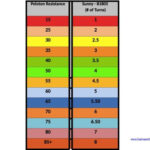When it comes to fueling your gasoline dirt bike, you might have heard about Avgas, particularly 100LL. While it’s a fuel, and it’s gasoline, is it really the right choice for your dirt bike? Let’s delve into what Avgas is and why it might not be the performance booster you’re hoping for on the trails or track.
Avgas, or aviation gasoline, like 100LL, is designed for aircraft engines. These engines typically operate at constant and relatively low RPMs. It’s a stable and quality fuel, but its formulation isn’t geared towards the high-performance demands of Gasoline Dirt Bikes. Thinking of using it to get more power? You’ll likely be disappointed. In fact, the blue dye in 100LL can even cause issues with your carburetor, specifically FCR types.
One rider shared their experience using Avgas in a WR250 2-stroke dirt bike, noting it smoothed out the power delivery, which could be beneficial in woods riding. However, the trade-off is the lead content. 100LL Avgas, while lower lead than older aviation fuels, still contains significantly more lead than most modern race fuels. This can lead to lead deposits building up inside your engine over time.
Experts point out key differences between Avgas and racing gasoline that are crucial for gasoline dirt bike performance. Firstly, Avgas is less dense than typical race fuel. This means for the same volume, you’re getting less fuel mass. To compensate, you’d need to adjust your carburetor to run richer, using larger jets to get the correct fuel-air mixture.
Secondly, and perhaps more importantly, Avgas often falls short in octane compared to dedicated racing fuels. High-performance gasoline dirt bike engines, especially those with aggressive ignition timing, require higher octane fuel to prevent detonation. Detonation is a destructive engine knock that can occur when fuel ignites prematurely and uncontrollably in the combustion chamber. This is especially a risk during lower RPM situations or deceleration where engine load can still be high. If your fuel’s octane is too low, detonation can rapidly cause severe piston damage.
While Avgas might seem like a readily available alternative, especially near airfields, for your gasoline dirt bike, it’s generally not optimized for performance or engine longevity in these applications. For maximum power and engine protection in your gasoline dirt bike, especially if it’s a high-performance or racing machine, using a proper racing gasoline is almost always the better choice. Investing in the right fuel is a smart way to protect your engine and ensure you’re getting the performance you expect from your dirt bike.


